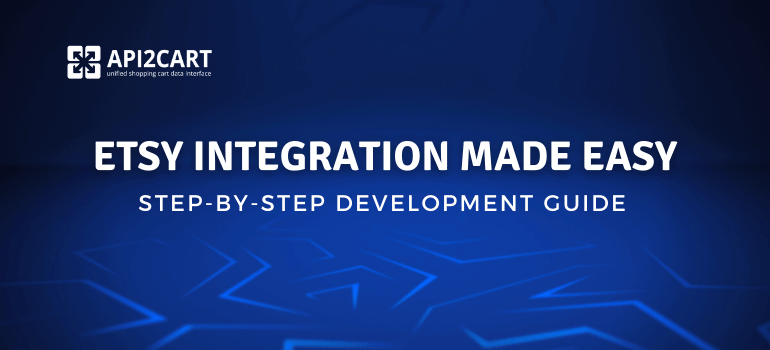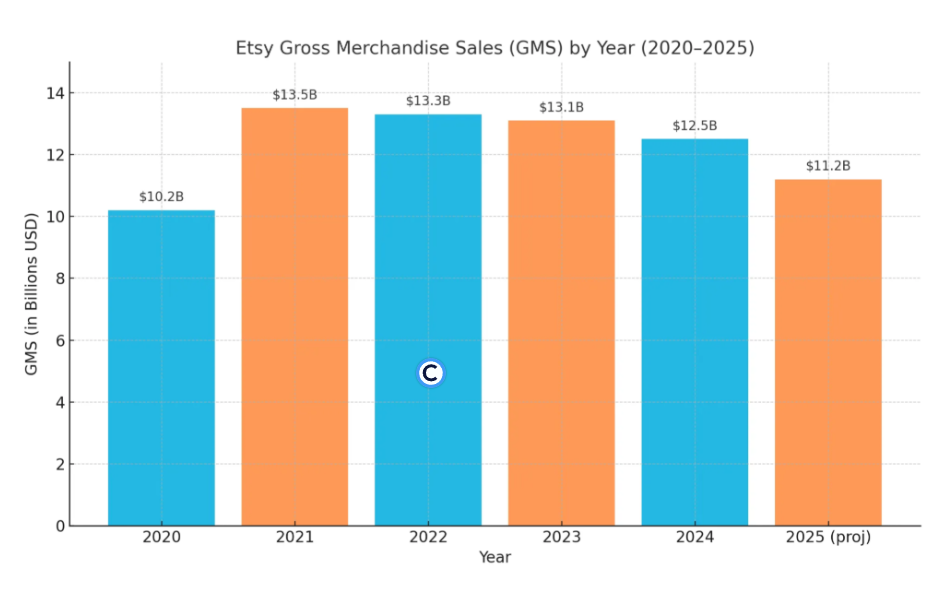
In 2026, Etsy remains one of the leading global marketplaces for handmade, vintage, and creative goods, serving over 90 million active buyers and more than 6 million active sellers worldwide according to Etsy Investor Relations. This scale creates strong demand for reliable etsy integration solutions among SaaS providers building automation and marketplace connectivity tools.
For developers of order management, inventory, ERP, WMS, shipping, and multichannel systems, Etsy integration enables structured access to high-volume marketplace data — including orders, listings, inventory levels, and fulfillment details — through API-based synchronization.
However, direct integration with Etsy v3 API requires ongoing maintenance, version tracking, OAuth handling, and compliance updates. This guide explains how Etsy API integration works in 2026 and how SaaS teams can simplify development and reduce long-term maintenance effort using API2Cart.
What Is Etsy API and How Does It Work in 2026?
According to Etsy Investor Relations, Etsy has over 90 million active buyers and more than 6 million active sellers worldwide. The platform generates billions in revenue each year. For SaaS providers, this makes Etsy integration an important growth opportunity, not just an extra feature.

Etsy API lets developers connect their apps to Etsy shops and work with store data. The current Etsy v3 API is based on REST, returns JSON responses, and uses OAuth 2.0 for secure access.
The API supports standard HTTP methods: GET, POST, PUT, and DELETE. This means developers can create, read, update, and delete Etsy data.
What Can Developers Do with Etsy API?
- Get product listings, tags, and images
- View and update orders and their statuses
- Sync inventory levels and prices
- Manage shipping and transaction data
- Access shop and customer details
However, Etsy uses a different data structure compared to many other marketplaces. For example, listings often include handmade items or product variations. Because of this, developers may need extra logic to organize and standardize data for multi-channel SaaS tools.
Why Does Etsy Integration Matter for SaaS Developers?
First of all, Etsy integration allows SaaS providers to serve millions of online sellers operating on the platform. As a result, your software can expand into a highly active marketplace segment.
Moreover, by integrating with Etsy, your solution can:
- Access store data such as products, orders, shipments, and customers in real time
- Automate workflows, including inventory synchronization and order fulfillment
- Expand your client base and reach Etsy sellers operating globally
- Improve data accuracy and operational transparency
- Increase revenue opportunities through marketplace connectivity
Therefore, if you build shipping software, WMS, ERP, repricing, or marketing automation systems, Etsy integration helps you deliver measurable value and strengthen your competitive positioning.
What Challenges Do Developers Face with Direct Etsy API Integration?
However, building a direct Etsy API integration is not always straightforward. Although Etsy provides official documentation, developers frequently encounter technical and operational limitations.
- Documentation gaps — Etsy API documentation may require additional testing and experimentation
- Data restrictions — access to certain customer and order details is limited due to privacy policies
- Rate limits — strict API call limits affect real-time synchronization and bulk operations
- Version updates — ongoing API changes require continuous maintenance
- Non-standard listing structures — unique handmade variations complicate data normalization
- Maintenance overhead — Etsy API evolves regularly, which increases long-term development costs
Consequently, many SaaS companies prefer unified API providers such as API2Cart, which abstract these complexities and reduce engineering workload.